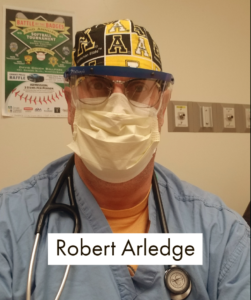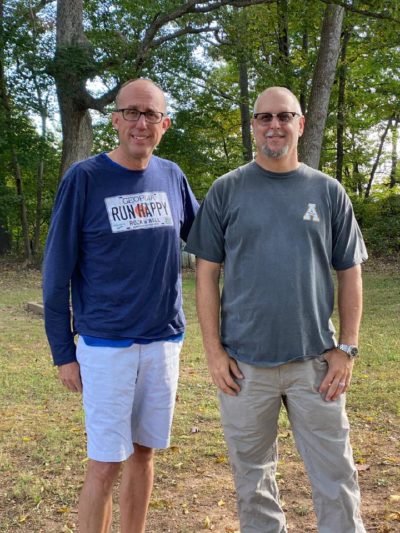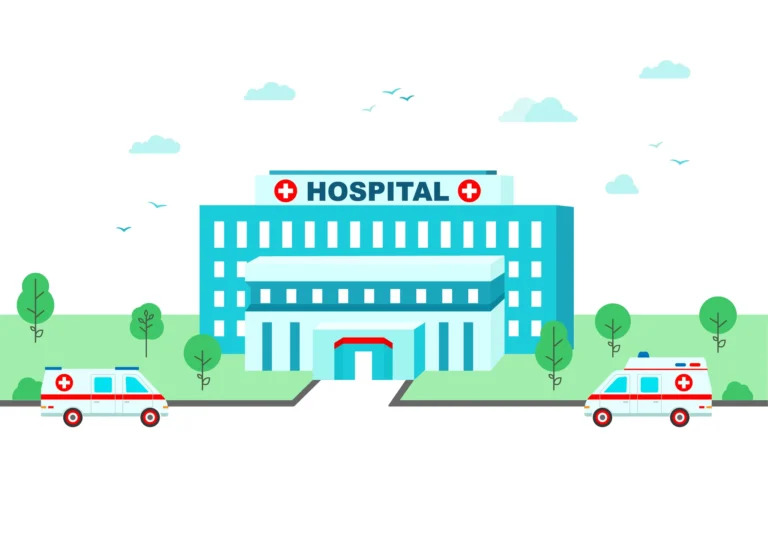Robert Arledge, PA-C, Lead APC at Hugh Chatham Memorial Hospital in the Piedmont Triad region of North Carolina, joins the ApolloMD team with 25 years of experience in emergency medicine. Born and raised in North Carolina, Arledge graduated from Appalachian State University with a B.S. in Biology before earning his P.A. at Emory University School of Medicine in Atlanta. Practicing in rural hospitals, tertiary facilities, and trauma centers, Arledge now focuses on rural medicine and appreciates the sense of community he feels at Hugh Chatham.
————————————————————————————————————–

The practice of rural medicine comes second nature to Robert Arledge, PA, Lead APC at Hugh Chatham Memorial Hospital in Elkin, NC. Upon graduation from Emory University’s Physician Associate program, he jumped at the chance to join the staff of a small-town hospital in Jackson, GA. While training at a busy metro facility gave him a top-notch education with the latest technology at his fingertips, he finds the rural environment brings a deeper connection to the upbringing that led him to seek a career in health care.
“I have a special place for small, rural hospitals because that’s where I started my career,” Arledge confirms, “that stems from where I grew up. When I took that first job, I needed to pay off my [school] loans, but it felt so normal because I’d grown up in a place like that. I guess I was being led there because of a sense of familiarity to rural communities.”
CLOSE CLIENT CONNECTIONS: Just One of the Benefits of Rural Medicine
He chuckles relaying anecdotes about experiences in that first position.
“My best friend from P.A. school went with me to that hospital; he’s originally from Boston so it was a huge culture shock. This was the mid-1990s and the charge nurse wore a beehive hairdo while rattling the med cart down the hallway calling everybody ‘honey’ or sneaking a cigarette.”
He fondly recalls overhearing ladies in the grocery store checkout line discussing his new home and critiquing the lighting selections.
“Everybody knew everything about you and truly cared,” he continues, “to the point that EMS received a call specifically requesting me, but the dispatcher knew that I was out of town visiting family and let them know I wasn’t available.” That patient then proceeded to send well wishes to Arledge’s parents and warm sentiments for his safe travels.

Erich, best friend from P.A. school from Boston (left) and Arledge (right)
After about five years, he headed back home to North Carolina to be near family. “My parents were getting older, and we had two young girls when we moved back to where I grew up outside Winston-Salem,” Arledge explains. When he first returned, he worked a trauma department in nearby Greensboro, but then moved to very familiar setting in Winston-Salem.
“I think that gets lost so much nowadays; what’s missing in medicine is contact outside the curtains. So much of medicine is trusting your provider— if you feel comfortable it goes a long way.”
WHY PRACTICE RURAL MEDICINE? For This P.A., It’s to Serve His Community
It’s this commitment to personal attention in health care that brought him over to Hugh Chatham, continuing to serve a community that thrives on its intrinsic hometown spirit.
“I enjoy the adrenaline rush and the sexiness of emergency medicine. That’s all great, but when it comes down to it, it’s all about the patient,” Arledge believes. “In the bigger facilities, what they might lack is the personal touch,” he reiterates. “There’s something about being able to pop my head in [a patient room] and say ‘Hey, we have friends in common’—that personal contact makes a difference practicing rural medicine… it gives some reassurance.”
He satisfies many of his professional priorities in this new leadership role at Hugh Chatham. “I like this hospital size and that it’s an independent hospital with good management,” he affirms.
He chuckles relaying anecdotes about experiences in that first position.
“Small foundation-centered hospitals are the core of complete rural medicine. Why should rural facilities not have just as good health care as bigger facilities?” he questions.
Why not, indeed. As Arledge deliberates on strategies for quality patient care, he reflects on the most effective elements for consistent success.
“You need to recruit quality people to come into work with you. When you are out here, you have to be more independent,” he observes. “Sometimes there are certain problems that admit to the hospital and need a specialist. But, if you can provide good, sound quality care and know where and when to refer people for rural emergency medicine jobs, that’s a big thing.

Practice good medicine and don’t worry about what you lack. Patients will note that we really took care of them. The community knows the limitations of the hospital, but yet when you trust that facility and have pride in it, you don’t dwell on that. You think about what we do here to keep the community healthy. That’s my understanding of the practice of rural medicine.”
HEALTHY HOME, HEALTHY COMMUNITY
One of the most interesting challenges of rural medicine? People who assume that practicing in a small hospital brings less-interesting cases. According to Arledge, the opposite is true.
“I see just as sick a patient here as I have anywhere,” he asserts. “Unusual presentations of serious cases show up in these small EDs and then you have to be a detective. My first shift [at Hugh Chatham] I was putting a central line in …the next day I did a lumbar puncture. Emergency medicine you have to do more of this wide-spectrum stuff.”
Moving into this community, Arledge fulfills a goal of returning to his roots and relishing life in the country. This lifestyle suits him and his latest passion project—restoring a 104-year-old farmhouse and property with his wife, an NP.
“The history is amazing. It’s on five acres and we’ll have chickens, honeybees, and pigs in the spring. It’s exhausting but so much fun. I get excited at night thinking about what I get to do the next day,” he effuses.
“My neighbor across the fields is 82 and he was born in this house; his dad built it. Small town means he already knew about me when I moved in. He told me ‘you need to stay here because we need good care, and now that I’m 82 I might start needing it at some point.’ Which is exactly why I’m here!”






